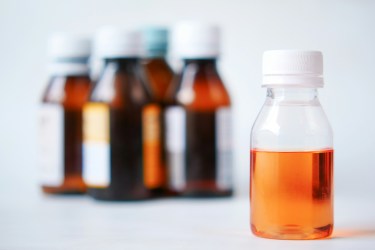
The death toll from contaminated cough syrup in Madhya Pradesh has risen to 23, with two more children succumbing to renal failure during treatment in Nagpur on October 9. All victims, aged between one and six years, died after consuming Coldrif syrup manufactured by Sresan Pharmaceuticals in Tamil Nadu’s Kancheepuram district.
The tragedy has sparked a political row between the Madhya Pradesh and Tamil Nadu governments, with both states trading blame over regulatory failures that allowed the toxic medicine to reach the market.
Police arrested Govindan Ranganathan, the 75-year-old owner of Sresan Pharmaceuticals, from his Chennai residence on October 8. A seven-member special investigation team from Madhya Pradesh, which had been camping in Tamil Nadu for several days, conducted the arrest in a joint operation with local police. Ranganathan’s manager Jayaraman and lab assistant Maheswari were also detained. All three were presented before a Chennai court, which issued a transit warrant for their transfer to Chhindwara.
Drug control laboratories in both states found that Coldrif syrup contained 48.6 per cent diethylene glycol, a poisonous industrial chemical found in brake fluids. The permissible limit set by India and the World Health Organisation is 0.1 per cent. The contaminated batch was manufactured in May 2025 and was set to expire in April 2027.
Of the 23 victims, 20 deaths were reported from Chhindwara district alone, with the remaining from Betul and Pandhurna districts. Ten children died at Government Medical College and Hospital, Nagpur, while others succumbed in nearby hospitals. Three children remain critical and are undergoing treatment in Nagpur.
Madhya Pradesh Chief Minister Mohan Yadav, who visited the affected families in Nagpur, accused his counterpart state of not cooperating adequately in the investigation. “End-to-end responsibility lies with the manufacturer. We have sacked our drug controller and assistant drug controller for negligence, but Tamil Nadu government should explain how it renewed the licence of a company that mixed poisonous brake-fluid chemicals into cough syrup,” Yadav said.
The Chief Minister questioned the licensing process of pharmaceutical companies in the southern state, asking how the factory operated in such a small space and how the licence was renewed without proper inspection.
Health Minister Ma Subramanian countered the allegations, stating that his government had alerted central and Madhya Pradesh authorities after discovering the presence of diethylene glycol. “Centre and MP government had cleared the drug, but we alerted them. We will permanently close the unit within days,” he said.
The state government suspended two senior drug inspectors, Deepa Joseph and K Karthikeyan, for failing to inspect Sresan’s plant as required under law. An internal audit reportedly flagged 364 critical and major lapses across the drug’s manufacturing chain.
Police have seized 589 bottles of Coldrif syrup in Chhindwara and 1,534 bottles statewide. Ranganathan faces charges of culpable homicide not amounting to murder, drug adulteration and violations of the Drugs and Cosmetics Act.
Indian authorities have also declared two other cough syrups toxic. Respifresh TR, manufactured by Rednex Pharmaceuticals in Gujarat, was found to contain 1.342 per cent diethylene glycol, while ReLife from Shape Pharma contained 0.616 per cent of the toxin. Both companies have been ordered to stop production, though no deaths have been linked to these syrups.
The World Health Organisation has sought details from India on possible exports and warned of a “regulatory gap” in domestic testing. The tragedy echoes a 2022 incident when more than 70 children in Gambia died after consuming contaminated Indian-made medicines.




